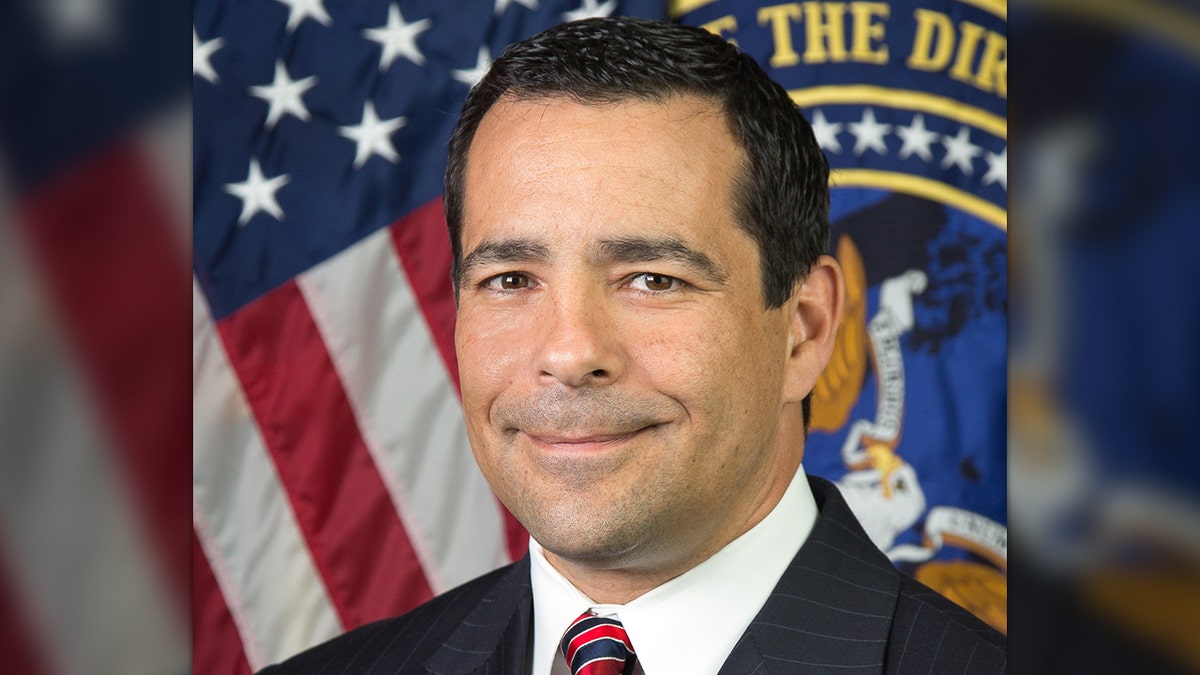US intel reportedly concludes the China concealed the extent of its coronavirus outbreak
Reaction and analysis from John Yoo, former deputy assistant attorney general, and Federalist contributor Helen Raleigh.
The intelligence community warned Friday that rival nations once again are attempting to influence U.S. policy and elections in a variety of ways, declaring that Iran wants to “undermine” President Trump while Russia is working to “primarily denigrate” former Vice President Joe Biden.
In the latest election threat update, officials also said China “prefers” that Trump “does not win reelection” in November.
Last month, the Office of the Director of National Intelligence was “primarily concerned” with China, Russia and Iran “seeking to compromise” the 2020 presidential election.
ODNI TO OFFER ELECTION SECURITY BRIEFINGS FOR BOTH PARTIES IN RUN-UP TO NOVEMBER
Director of the National Counterintelligence and Security Center Bill Evanina on Friday revealed additional information on those threats.
“Ahead of the 2020 U.S. elections, foreign states will continue to use covert and overt influence measures in their attempts to sway U.S. voters’ preferences and perspectives, shift U.S. policies, increase discord in the United States, and undermine the American people’s confidence in our democratic process,” Evanina said in a statement.
Bejing prefers a Trump loss because Chinese officials view him as unpredictable, Evanina wrote. China has been expanding its attempt to influence the General Election and shape U.S. policy, by pressuring political figures Chinese officials view as opposed to China's interests, he said.

Director of the National Counterintelligence and Security Center Bill Evanina. (ODNI)
“Although China will continue to weigh the risks and benefits of aggressive action, its public rhetoric over the past few months has grown increasingly critical of the current Administration’s COVID-19 response, closure of China’s Houston Consulate, and actions on other issues.”
China “has harshly criticized the Administration’s statements and actions on Hong Kong, TikTok, the legal status of the South China Sea, and China’s efforts to dominate the 5G market," Evanina said. "Beijing recognizes that all of these efforts might affect the presidential race.”
Last month, the Trump administration moved to close the Chinese consulate in Houston, Texas, partially because of the Chinese Communist Party’s targeting of U.S. energy firms.
Later the same day, China ordered the closure of the U.S. consulate in the western city of Chengdu in Sichuan Province, in apparent retaliation.
As for TikTok, the Trump administration has taken a tough stance on the Chinese social media platform, issuing an executive order late Thursday that would see the platform banned in the U.S. within 45 days.
The U.S. ban puts pressure on the China-based company to sell the app’s U.S. platform -- Microsoft is reportedly a leading contender, but the deal will be closely monitored by the Trump administration.
Meanwhile, Evanina said the intelligence community assesses “that Russia is using a range of measures to primarily denigrate former Vice President Biden and what it sees as an anti-Russia ‘establishment.’”
ODNI 'PRIMARILY CONCERNED' WITH CHINA, IRAN, RUSSIA 'SEEKING TO COMPROMISE' 2020 ELECTION
“This is consistent with Moscow’s public criticism of him when he was Vice President for his role in the Obama Administration’s policies on Ukraine and its support for the anti-Putin opposition inside Russia,” Evanina said.
Meanwhile, pro-Russia Ukrainian parliamentarian Andriy Derkach is spreading claims about corruption by leaking phone calls to undermine former Vice President Biden’s candidacy and the Democratic Party, Evanina said.
Evanina went on to add that “some Kremlin-linked actors are also seeking to boost President Trump’s candidacy on social media and Russian television.”
As for Iran, the intelligence community said that it “seeks to undermine” democratic institutions, President Trump, and to “divide the country” in advance of the elections.
“Iran’s efforts along these lines probably will focus on online influence, such as spreading disinformation on social media and recirculating anti-U.S. content,” Evanina said. “Tehran’s motivation to conduct such activities is, in part, driven by a perception that President Trump’s reelection would result in a continuation of U.S. pressure on Iran in an effort to foment regime change.”
Evanina, however, assured the public that the “IC is also doing everything in its power to combat both cyber and influence efforts targeting our electoral process.”
“Our election should be our own. Foreign efforts to influence or interfere with our elections are a direct threat to the fabric of our democracy,” he said.
Evanina was tapped in May to handle briefing presidential candidates, their campaigns and major political parties on election security threats. The defensive briefings from the intelligence community come after it was determined from U.S. intelligence agencies that Russia interfered in the 2016 election.
Intelligence officials have said that Russia interfered through social media campaigns and through stealing and distributing emails from Democratic accounts. The intelligence community has long maintained that Russia was trying to boost Donald Trump’s campaign and add chaos to the American political process.
Special Counsel Robert Mueller concluded that Russian interference was “sweeping and systematic,” but he did not find a criminal conspiracy between Russia and the Trump campaign.





